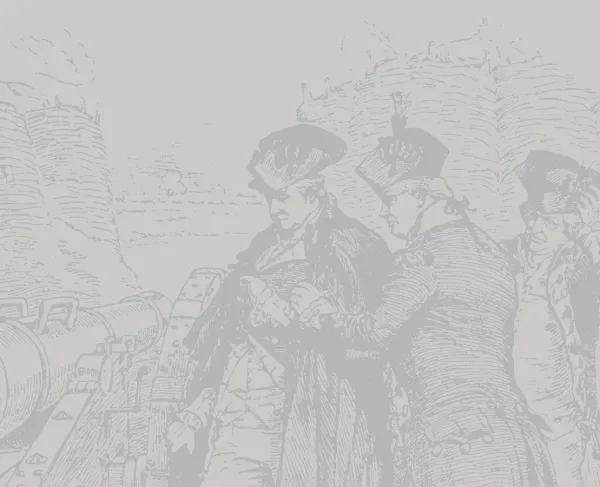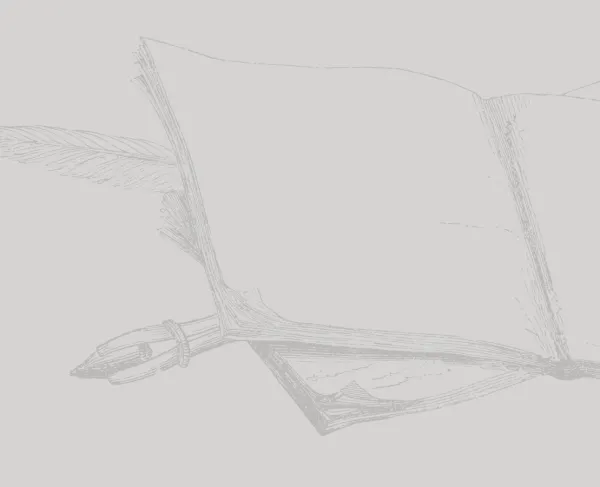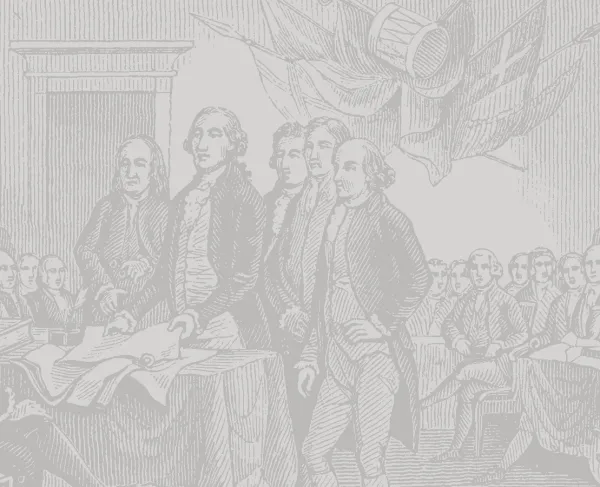John Locke - Excerpts from the Second Treatise on Government

John Locke was a political philosopher of the Enlightenment Era, and his theories influenced the concepts of liberty, social contract, and human rights that the United States Founding Fathers studied, debated, and used to form a new nation. The following excerpts are taking from Locke's Second Treatise on Government (1690) and addresses the concept of social contract and the right to revolution.
Second Treatise on Government
Chapter 2: “Of the State of Nature”:
Sect. 4: TO understand political power right, and derive it from its original, we must consider, what state all men are naturally in, and that is, a state of perfect freedom to order their actions, and dispose of their possessions and persons, as they think fit, within the bounds of the law of nature, without asking leave, or depending upon the will of any other man.
A state also of equality, wherein all the power and jurisdiction is reciprocal, no one having more than another; there being nothing more evident, than that creatures of the same species and rank, promiscuously born to all the same advantages of nature, and the use of the same faculties, should also be equal one amongst another without subordination or subjection, unless the lord and master of them all should, by any manifest declaration of his will, set one above another, and confer on him, by an evident and clear appointment, an undoubted right to dominion and sovereignty. . . .
Sect. 6. But though this be a state of liberty, yet it is not a state of licence: though man in that state have an uncontroulable liberty to dispose of his person or possessions, yet he has not liberty to destroy himself, or so much as any creature in his possession, but where some nobler use than its bare preservation calls for it. The state of nature has a law of nature to govern it, which obliges every one: and reason, which is that law, teaches all mankind, who will but consult it, that being all equal and independent, no one ought to harm another in his life, health, liberty, or possessions: for men being all the workmanship of one omnipotent, and infinitely wise maker; all the servants of one sovereign master, sent into the world by his order, and about his business; they are his property, whose workmanship they are, made to last during his, not one another’s pleasure: and being furnished with like faculties, sharing all in one community of nature, there cannot be supposed any such subordination among us, that may authorize us to destroy one another, as if we were made for one another’s uses, as the inferior ranks of creatures are for our’s. Every one, as he is bound to preserve himself, and not to quit his station wilfully, so by the like reason, when his own preservation comes not in competition, ought he, as much as he can, to preserve the rest of mankind, and may not, unless it be to do justice on an offender, take away, or impair the life, or what tends to the preservation of the life, the liberty, health, limb, or goods of another. . . .
Chapter 5, “Of Property”:
Sect. 26: God, who hath given the world to men in common, hath also given them reason to make use of it to the best advantage of life, and convenience. The earth, and all that is therein, is given to men for the support and comfort of their being. And tho’ all the fruits it naturally produces, and beasts it feeds, belong to mankind in common, as they are produced by the spontaneous hand of nature; and no body has originally a private dominion, exclusive of the rest of mankind, in any of them, as they are thus in their natural state: yet being given for the use of men, there must of necessity be a means to appropriate them some way or other, before they can be of any use, or at all beneficial to any particular man. . . .
Sect. 27. Though the earth, and all inferior creatures, be common to all men, yet every man has a property in his own person: this no body has any right to but himself. The labour of his body, and the work of his hands, we may say, are properly his. Whatsoever then he removes out of the state that nature hath provided, and left it in, he hath mixed his labour with, and joined to it something that is his own, and thereby makes it his property. It being by him removed from the common state nature hath placed it in, it hath by this labour something annexed to it, that excludes the common right of other men: for this labour being the unquestionable property of the labourer, no man but he can have a right to what that is once joined to, at least where there is enough, and as good, left in common for others. . . .
Chapter 8, “Of the Beginning of Political Societies”:
Sect. 95: MEN being, as has been said, by nature, all free, equal, and independent, no one can be put out of this estate, and subjected to the political power of another, without his own consent. The only way whereby any one divests himself of his natural liberty, and puts on the bonds of civil society, is by agreeing with other men to join and unite into a community for their comfortable, safe, and peaceable living one amongst another, in a secure enjoyment of their properties, and a greater security against any, that are not of it. This any number of men may do, because it injures not the freedom of the rest; they are left as they were in the liberty of the state of nature. When any number of men have so consented to make one community or government, they are thereby presently incorporated, and make one body politic, wherein the majority have a right to act and conclude the rest.
Sect. 96. For when any number of men have, by the consent of every individual, made a community, they have thereby made that community one body, with a power to act as one body, which is only by the will and determination of the majority: for that which acts any community, being only the consent of the individuals of it, and it being necessary to that which is one body to move one way; it is necessary the body should move that way whither the greater force carries it, which is the consent of the majority: or else it is impossible it should act or continue one body, one community, which the consent of every individual that united into it, agreed that it should; and so every one is bound by that consent to be concluded by the majority. And therefore we see, that in assemblies, impowered to act by positive laws, where no number is set by that positive law which impowers them, the act of the majority passes for the act of the whole, and of course determines, as having, by the law of nature and reason, the power of the whole.
Sect. 97. And thus every man, by consenting with others to make one body politic under one government, puts himself under an obligation, to every one of that society, to submit to the determination of the majority, and to be concluded by it; or else this original compact, whereby he with others incorporates into one society, would signify nothing, and be no compact, if he be left free, and under no other ties than he was in before in the state of nature. For what appearance would there be of any compact? what new engagement if he were no farther tied by any decrees of the society, than he himself thought fit, and did actually consent to? This would be still as great a liberty, as he himself had before his compact, or any one else in the state of nature hath, who may submit himself, and consent to any acts of it if he thinks fit. . . .
Chapter 19, “Of the Dissolution of Government”:
Sect. 222: The reason why men enter into society, is the preservation of their property; and the end why they chuse and authorize a legislative, is, that there may be laws made, and rules set, as guards and fences to the properties of all the members of the society, to limit the power, and moderate the dominion, of every part and member of the society: for since it can never be supposed to be the will of the society, that the legislative should have a power to destroy that which every one designs to secure, by entering into society, and for which the people submitted themselves to legislators of their own making; whenever the legislators endeavour to take away, and destroy the property of the people, or to reduce them to slavery under arbitrary power, they put themselves into a state of war with the people, who are thereupon absolved from any farther obedience, and are left to the common refuge, which God hath provided for all men, against force and violence. Whensoever therefore the legislative shall transgress this fundamental rule of society; and either by ambition, fear, folly or corruption, endeavour to grasp themselves, or put into the hands of any other, an absolute power over the lives, liberties, and estates of the people; by this breach of trust they forfeit the power the people had put into their hands for quite contrary ends, and it devolves to the people, who have a right to resume their original liberty, and, by the establishment of a new legislative, (such as they shall think fit) provide for their own safety and security, which is the end for which they are in society. What I have said here, concerning the legislative in general, holds true also concerning the supreme executor, who having a double trust put in him, both to have a part in the legislative, and the supreme execution of the law, acts against both, when he goes about to set up his own arbitrary will as the law of the society. He acts also contrary to his trust, when he either employs the force, treasure, and offices of the society, to corrupt the representatives, and gain them to his purposes; or openly preengages the electors, and prescribes to their choice, such, whom he has, by sollicitations, threats, promises, or otherwise, won to his designs; and employs them to bring in such, who have promised before-hand what to vote, and what to enact. Thus to regulate candidates and electors, and new-model the ways of election, what is it but to cut up the government by the roots, and poison the very fountain of public security? for the people having reserved to themselves the choice of their representatives, as the fence to their properties, could do it for no other end, but that they might always be freely chosen, and so chosen, freely act, and advise, as the necessity of the commonwealth, and the public good should, upon examination, and mature debate, be judged to require. This, those who give their votes before they hear the debate, and have weighed the reasons on all sides, are not capable of doing. To prepare such an assembly as this, and endeavour to set up the declared abettors of his own will, for the true representatives of the people, and the law-makers of the society, is certainly as great a breach of trust, and as perfect a declaration of a design to subvert the government, as is possible to be met with. . . .
Sect. 223. To this perhaps it will be said, that the people being ignorant, and always discontented, to lay the foundation of government in the unsteady opinion and uncertain humour of the people, is to expose it to certain ruin; and no government will be able long to subsist, if the people may set up a new legislative, whenever they take offence at the old one. To this I answer, Quite the contrary. People are not so easily got out of their old forms, as some are apt to suggest. They are hardly to be prevailed with to amend the acknowledged faults in the frame they have been accustomed to. And if there be any original defects, or adventitious ones introduced by time, or corruption; it is not an easy thing to get them changed, even when all the world sees there is an opportunity for it. This slowness and aversion in the people to quit their old constitutions, has, in the many revolutions which have been seen in this kingdom, in this and former ages, still kept us to, or, after some interval of fruitless attempts, still brought us back again to our old legislative of king, lords and commons: and whatever provocations have made the crown be taken from some of our princes heads, they never carried the people so far as to place it in another line.
Sect. 224. But it will be said, this hypothesis lays a ferment for frequent rebellion. To which I answer, . . . No more than any other hypothesis: for when the people are made miserable, and find themselves exposed to the ill usage of arbitrary power, cry up their governors, as much as you will, for sons of Jupiter; let them be sacred and divine, descended, or authorized from heaven; give them out for whom or what you please, the same will happen. The people generally ill treated, and contrary to right, will be ready upon any occasion to ease themselves of a burden that sits heavy upon them. They will wish, and seek for the opportunity, which in the change, weakness and accidents of human affairs, seldom delays long to offer itself. . . .
Source





